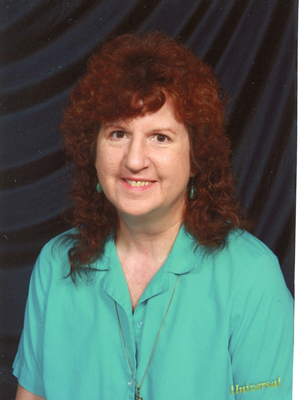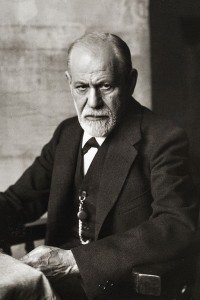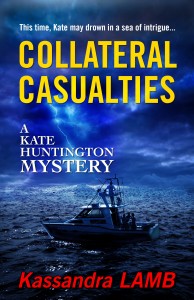 Kassandra Lamb is a retired psychotherapist and psychology professor who now writes mysteries. I’m honored to have this fab gal as my guest here today! She’s celebrating the release of her 5th novel by doing a “Tour of Fives” around the blogosphere.
Kassandra Lamb is a retired psychotherapist and psychology professor who now writes mysteries. I’m honored to have this fab gal as my guest here today! She’s celebrating the release of her 5th novel by doing a “Tour of Fives” around the blogosphere.
So today she brings us…
Five Reasons I Have Come to Appreciate History
by Kassandra Lamb
In high school, I was placed in Honors American History. I hated it! We were going over the same boring stuff I’d been learning since first grade, except now I had tons of homework every night. I badgered my mother until she let me transfer to a regular history class. I was still bored but at least I didn’t have all that homework.
With age comes wisdom and I have since grown to appreciate history. Why? I’ll give you five reasons.
1. I’ve now lived a good bit of it! I was 11 years old when JFK was assassinated. I had just turned 12 when the first bra-burning launched the women’s liberation movement. I was 16 when Martin Luther King, Jr. was killed. I was involved in the Civil Rights movement and lived through the Vietnam War era.
When you’ve actually experienced events that those a decade or so younger have only heard about in history class… well, it changes your perspective some.
2. I love finding out how people dealt with everyday life before the invention of modern conveniences. Before vacuum cleaners, women hung their rugs on a metal rack and beat on them with wooden or metal contraptions to get the dirt out.

And then there is the fascinating concept of the “water closet.” Sir John Harington came up with the idea originally in the 1500’s but it didn’t really become popular until plumber Thomas Crapper fine-tuned the design in 1880 (yeah, that really was his name; see Kathy’s post on the subject). How totally clever! A container of water, a lever and a chain to pull the stopper up and down, plus gravity and voila, no more trips to the outhouse.
3. I find the changing trends in society fascinating. A few years ago, I was putting together a special topics class on relationships. While doing some research for the unit on families, I discovered that the much touted concept of the “traditional” nuclear family with male breadwinner/female “non-working” housewife was actually a relatively newfangled idea.
Prior to World War II (i.e., my grandmother’s generation and before), the most common family structure was the extended agrarian family, with multiple generations living on the farm. The women milked cows, tended chickens, raised vegetables, etc. as well as their domestic chores. And at certain times of the year, they would be out in the fields alongside the men, as is still the case in most developing countries.

Some poorer folks had moved to towns or cities to find work after the Industrial Revolution. In these families, the mother worked or the family starved. At the very least, she took in laundry, sewed and/or cleaned the rich folks’ houses. Even in many middle-class families the wife helped in the family store. Only very well-to-do women had the luxury of not contributing to the family resources.
My parents’ generation was the first one in which couples from the working class and middle class routinely aspired to (1) live in their own house as a nuclear family, and (2) be able to afford for the wife to just be the housekeeper, cook and caretaker of children.
That little waltz down the path of history was a real eye-opener for me! Sometimes the good ole days weren’t as good, nor as old, as they’re portrayed as being.
4. Sometimes what famous people said makes a lot more sense in context. I need to note here that I don’t normally discuss religion or politics in online settings, but I just couldn’t find another good example of this (that wasn’t political). So here’s my story and I hope it doesn’t offend anyone.
In a Bible study class several summers ago, we were studying Paul’s first letter to the Corinthians, one of the books in the New Testament. I secretly had always thought Paul was a prude because he went on and on about “matters of the flesh.” While studying 1st Corinthians in the context of when, why and to whom it was written, I found out two things.
One, the city of Corinth had a very bad reputation. Idol worshiping and drunken debauchery were rampant. Thus Paul felt the need to remind the Christians in Corinth to behave themselves.
Secondly, there was a huge debate in the early church as to whether gentiles had to follow the Jewish laws if they became Christians. Some contended that gentile men needed to be circumcised before they were baptized. This tended to cause second thoughts about conversion. Some of Paul’s rants at the Corinthian Christians about their focus on “matters of the flesh” were to get them to stop insisting on circumcision. They were chasing off converts.
Which brings us to…
5. Sigmund Freud. Although he wasn’t the first psychologist, he’s the one who put the field on the map. Today he is often accused of being a woman hater who was obsessed with sex. He was neither. (He was sexist, but no more so than anyone else in his era.)

When I started teaching college I had to study the history of the field more carefully, in order to teach it to my students. I realized that some of Freud’s theories made more sense in the context of that history.
He started out as a neurologist. One disorder he saw a lot of was hysteria (more common in his day; it’s called conversion disorder today). Freud was fascinated with this disorder and eventually specialized in it. He postulated, correctly by the way, that the physical symptoms–numbness, deafness, paralysis, etc.–were not caused by neurological problems but rather by unconscious psychological conflicts.
Several other specialists of his era shared this belief. One of them, Pierre Janet, noted that many women suffering from hysteria reported dreams and flashbacks that indicated they had been sexually abused (again, I hope I don’t offend anybody, but this is reality).
Freud, however, misinterpreted these dreams/flashbacks reported by his hysteria patients as “wish-fulfillment fantasies” that were natural to all children (Ick!) and he developed his theory of child development around that assumption.
Today we may laugh, or cringe, at his theory that all little boys fear their daddies will cut off their wee-wees as retaliation for their lewd thoughts (castration fear) and that little girls play with dolls and want to have babies as a symbolic substitution for what they really want (penis envy). But when you put his theories in the context of the patient population he worked with, it makes a bit more sense how Freud sometimes went down the wrong path.
I’m now inclined to cut him some slack. He got a lot of things right, such as the existence of the unconscious mind and defense mechanisms. Yes, the things he got wrong seem so ludicrous, but that is by today’s standards.
How about you? What is it that fascinates you most about history? Let me know in the comments section!
Thanks, Kass! You know how much we dig these interesting nuggets of history around here. Really cool. 🙂
Let me tell you about Kassandra’s new release, Collateral Casualties, the fifth book in her Kate Huntington mystery series (which reads wonderfully as a stand-alone, too):
When a former client reaches out to psychotherapist Kate Huntington and reveals a foreign diplomat’s dark secret, then dies of ‘natural causes’ just days later, Kate isn’t sure what to think. Was the man delusional or is she now privy to dangerous information?
Soon she discovers her client was totally sane… and he was murdered. Someone is now trying to eliminate her, and anyone and everyone she might have told. Forced into hiding, she and her husband, Skip, along with the operatives of his private investigating agency, struggle to stay one step ahead of a ruthless killer. Skip and his P.I. partner are good investigators, but this time they may be in over their heads… and they could all end up drowning in a sea of international intrigue.
Doesn’t that sound like a fun mystery to curl up with on a lazy summer evening? I’ve had the chance to read an advance copy, and it’s an absorbing read – I didn’t want to set it down!
Where to buy:
Where to find Kassandra Lamb:
Kassandra blogs at http://misteriopress.com. You can read and see more about her and her books at http://kassandralamb.com. She also hangs out on Twitter (@KassandraLamb) and Facebook (http://www.facebook.com/kassandralambauthor)
Let’s show her some blog love!
Until next time,
Kathy








Hey, Kathy, thanks for letting me hang out at your place today. I truly have fallen in love with history. Loved having a chance to talk about why.
Like you, Kassandra, I hated history in school. It wasn’t personal for one, and two, it felt like busy-work…. papers written solely to inspire the regurgitation of facts we’d had to memorize several time already.
However… I love it now. Your note about the nuclear family not being that “traditional”… I grew up on our family farm–mostly. Over half my year was spent living with Mom at my grandparent’s where both my great-grandfather (until his suicide) and great-grandmother also lived and farmed. I’m still in my early 40’s from a regular middle-class family…
And I hadn’t thought about what you were saying about Paul, but yes! That makes sense. Thanks!
History is personal… because it’s about people, and yet somehow schools often fail to make this clear. Or they make it about the “special people”, and that’s just as bad.
I don’t know how history is taught in schools today but it sure wasn’t ‘personal’ when I was a kid. You are so right, Eden. It needs to be about people, and then students may care and actually learn something useful.
Great post – thanks for sharing your thoughts. I agree – I think a lot of people get put off history because it’s presented as lists of facts – the inevitable school history where we are forced to learn lists of British monarchs (ouch) among other things. Actually that masks the reality of it, which is about shape, trend and pattern. For me, history is seriously cool because of the way it gives us perspectives on the present. By understanding where we’ve come from and how society changes, we understand more about ourselves today – and about where we might go. To me history is a pretty sharp tool for revealing more about the human condition. One of a raft of such tools that I enjoy exploring.
Ha! You got British monarchs, Matthew; we got American presidents. Boooring! I’m sorry now that it took me so long to realize how important the past is to understanding the present. A very useful tool indeed.
Yikes, I remember having to memorize monarchs AND presidents! BORING. Isn’t it funny how we’ve come to appreciate history now? Kass, thanks again for such a thoughtful post.
Well Kassandra, you and I are only four years apart. I was right behind you during some very interesting history. That said, I’ve always liked learning about history, biblical or not. Although, I did not attend college. I was one of those privileged mothers who did get to stay home with her children. That period of time was always something that meant so much to me. Thanks for the many posts this week Kassandra. I hope I’ve kept up with them all. I tried anyway. Great job on the blog tour. And hi there Kathy! Have a good evening girls! 🙂
So sorry, Karen. I didn’t mean to run you ragged, girl! LOL But thanks so much for all your support.
I believe there is a Chinese saying, or perhaps it is a curse: May you live in interesting times! We certainly have done that.
I think I’ve
confesseddiscussed before on this blog that history class was an exercise in (1) staying awake, and (2) dodging chalkboard erasers. I often entertained myself staring out the classroom windows. The teacher felt whizzing an eraser past my head was an effective teaching technique. Go figure.It’s articles like this that bring history alive for me. And, history in the form of fiction.
It’s also — as you said Kassandra — the fact that I lived through periods of time now studied in history classes.
BTW, the only class I found more boring than history was a Saturday morning Psych class in college. Why? (Aside from that Saturday morning nonsense.) The professor stood in front of the lecture hall and read from the book verbatim. Boring, slow-paced, and monotone. Give. Me. A. Break!
Or, a pillow.
I took several Psychology classes later and loved them. The professor knew we could read. Novel concept, that.
Intriguing storyline, Kassandra. Will my TBR stack never stop growing? Geesh! I hope not.
Ironically, Gloria, my first psych class was the most boring class ever. The book was as dry as unbuttered toast and the prof just talked about how wonderful he was. It was a sociology class that turned me on to my fascination with how human beings tick. Most of my later psych classes were fabulous though.
Hm, flying chalkboard erasers. I never tried that on my classes. Somehow I don’t think one would get away with that today. 🙂
I know what you mean, Gloria – my TBR pile keeps growing! I remember Psychology being a bit more interesting than Chemistry, though. 😉
Now that you mention it, I think we did have some monarchs thrown in there also. At least the ones up through the American Revolution.
Thanks so much, for having me, Kathy. This was a blast!
Oh and you all should check out Matthew’s post explaining the super moon. It’s really cool!
Ooh, cool – have to check that out. We got to see the SuperMoon over the weekend.
Interesting! I was a history major in college. It drives me NUTS to have boring history teachers and classes. There is NO REASON why history can’t be fascinating. It’s just the combination of people’s stories, ones who formed our cultures and institutions. We need more good storytellers as history profs. That’s my vote!
Amen to that, Julie! That should be a requirement for sure.
I use stories all the time in my classes to illustrate points. It’s a fun way to teach and a fun way to learn. I tell my students I was a Navajo storyteller in a previous lifetime. Ya know, those figurines you see of the fat woman with children hanging all over her. Yup, that was me!
I think that public school education is at least TRYING to make history more interesting and personal these days (at least, judging by the textbooks and projects they do). Time will tell.